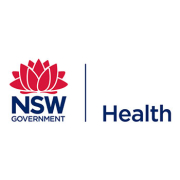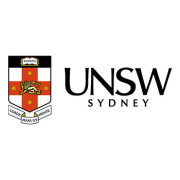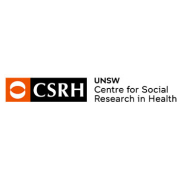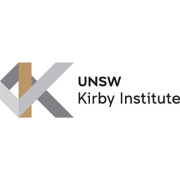Chief Investigator: Dr Prital Patel
Awareness and experiences of contemporary options for HIV testing among untested and under-tested gay and bisexual men: research to inform targeted promotion of HIV testing to address increased late HIV diagnoses in NSW
Chief Investigator: Dr Phillip Keen
The DBS economic evaluation project Phase I
Chief Investigator: Professor Jason Grebely
Dried blood spot (DBS) is a self-collection method that enables people to collect samples in their own home or other safe place, post back the sample for testing at an accredited laboratory and receive results without having to necessarily attend a health service. The NSW dried blood spot (DBS) HIV and hepatitis C testing pilot (hereafter NSW DBS Pilot) was launched in November 2016 with the primary objective of increasing access to HIV testing for priority populations who infrequently test for HIV. DBS was made available for gay and other men who have sex with men, people born in high prevalence regions (for the purpose of this study, this includes Asia and Africa) and people with current or previous sexual partners from high prevalence regions. In September 2017, hepatitis C RNA testing was added to the pilot for individuals who identify as Aboriginal and/or Torres Strait Islander or people with a history of injecting drug use. This economic analysis evaluated the total and annual cost of the NSW DBS Pilot program for HIV and hepatitis C DBS testing.
Evaluation of the NSW DBS HIV and HCV Testing Pilot Program
Chief Investigator: Professor Jason Grebely
The NSW DBS Pilot is a critical state-level initiative to improve access to HIV and HCV testing and linkage to care and treatment. The development of a series of comprehensive reports focusing on the objectives of the study would be important to communicating to stakeholders (including policy makers, providers, and the affected community) the successes of the project.
Evaluation of Nurse Protocol Supply and Dispensing in NSW Public Funded Sexual Health Services
Chief Investigator: Associate Professor Limin Mao
A 2018 NSW Health Policy Directive with Nursing Supply and Administration Protocols was approved and later updated (in 2020). They allow Registered Nurses working in Publicly Funded Sexual Health Services to be accredited to treat eligible STI patients by immediately dispensing take-home medications within the scope of the protocols. This co-designed, internal Quality Assurance project examined the number and types of medication supplies made under the specified protocols at selected clinics, evaluated safety, estimated the working hours saved by the protocols, and appraised the satisfaction and acceptability of the protocols among clinicians in those specified settings.
Finding the missing in the hepatitis C response in NSW A systemic response
Chief Investigator: Scientia Professor Carla Treloar
This project will encompass a review of existing strategies drawn from local and international settings to examine key stakeholders’ perceptions of individual, practitioner and systems level factors important to generate feasible strategies of the NSW context.
Flux cohort extension: Impact of COVID-19 on HIV and sexual risk among Gay and Bisexual Men
Chief Investigator: Associate Professor Garrett Prestage
Current reports and early data suggest that physical distancing restrictions due to COVID-19 may markedly affect sexual and other risk behaviours and health-seeking practices among gay and bisexual men (GBM). These changes in behaviour will likely lead to significant fluctuations in trends in HIV infection and other sexually transmissible infections (STIs), and in testing practices, both during and after those physical distancing restrictions. Monitoring these changes in behaviour will be key to understanding and responding to changes in epidemiological trends over the coming months.
The HIV Stigma Discovery Project
Chief Investigator: Dr Steve Pilpott
The NSW HIV Strategy 2021-2025 aims to reduce stigma as a barrier to HIV prevention, testing, and treatment. One of the initiatives included to achieve this goal is to analyse the client journey through primary healthcare to prevention, testing, and treatment. This qualitative interview project seeks to gain in-depth insight into the client journey of a specific sub-population of gay and bisexual and other men who have sex with men (GBMSM) living in NSW who are now disproportionately diagnosed with HIV – overseas-born GBMSM. It seeks to investigate barriers and facilitators for seeking and engaging with primary healthcare that are caused by social stigma, systemic stigma, and perceived stigma for overseas born GBMSM. It also seeks to explore whether and how men within these populations form ties to gay community. The reason for this is that research has found that gay community connection encourages health seeking behaviours (Anderson & Knee, 2020; Hammoud et al., 2019; Mao et al., 2009; Prestage et al., 2018; Ridge et al., 1997) and so there is likely a strong link between being gay community connected and accessing sexual health services.
Identifying strategies to address institutional stigma in health care settings
Chief Investigator: Ms Elena Cama
There are multiple levels at which stigma occurs – individual, interpersonal, and institutional or structural. While individual and interpersonal forms of stigma have received significant scholarly attention, institutional or structural stigma has received much less attention in the academic literature. This project seeks to build on knowledge of institutional or structural stigma to identify policies, practices, and strategies that could usefully reduce this type of stigma experienced by people affected by blood-borne viruses (BBVs) and sexually transmissible infections (STIs) in health care settings. The study aimed to identify evidence on the conceptualisation of institutional and structural stigma and on interventions targeting this form of stigma in health care settings; identify key stakeholders who could speak to institutional and structural stigma in health care in New South Wales; and conduct interviews with these stakeholders to identify examples of institutional and structural stigma, as well as practices and environments that might be effective in addressing institutional and structural stigma in health care settings in New South Wales. Interviews were conducted with 24 key informants, who were employed in a range of different positions, including in academia and research, not-for-profit and community organisations, in health services and as health managers. Findings from this study are forthcoming.
The impact of COVID-19 on harm reduction services
Chief Investigator: Associate Professor Loren Brener
Harm reduction services in NSW have responded to the COVID-19 pandemic with a range of strategies to maintain and extend safe service provision to people who inject drugs (PWID). Research was undertaken by CSRH to assess the changes and impacts of COVID-19 on harm reduction services, surveying harm reduction and AOD service staff and interviewing PWID and staff from four NSW services in late 2020 to early 2021 (prior to the Delta variant driven ‘third wave’ and vaccine availability). Harm reduction and AOD services responded in a range of ways to implement COVID-19 infection control strategies, whilst maintaining and expanding service access through remote and innovative strategies. Service users reported some adverse experiences during this time, such as increased loneliness, and unmet general and mental health needs. Harm reduction staff were aware of these issues, reporting that they did what they could to overcome service barriers, including introducing innovative strategies to maintain engagement with service users. Addressing structural disadvantage and social exclusion appeared to be important macro-level priorities for limiting health and wellbeing harms, and for promoting COVID-19 vaccination and ongoing prevention strategies.
International Student Sexual health OLM evaluation
Chief Investigator: Associate Professor Limin Mao
International students have limited sexual and reproductive health literacy, including knowledge about HIVSTI transmission and how to access sexual health services. In close collaboration with and supported by the NSW Play Safe Program’s International Student Consortium and its working group, a self-directed online learning module (OLM) is developed to improve international students’ sexual and reproductive health literacy in NSW. This preliminary evaluation will provide recommendations on changes to the OLM and develop an ongoing evaluation plan.
Monitoring hepatitis B and C elimination through data linkage: Evaluation of cascades of care, advanced disease hospitalizations, and mortality including focus on late hepatitis diagnosis and analyses specific to CALD communities and Aboriginal and...
Title: Monitoring hepatitis B and C elimination through data linkage: Evaluation of cascades of care, advanced disease hospitalizations, and mortality including focus on late hepatitis diagnosis and analyses specific to CALD communities and ATSI peoples
Chief Investigator: Dr Phillip Keen
NSW NSP Enhanced Data Collection
Chief Investigator: Professor Lisa Maher
The NSW Needle and Syringe Program Enhanced Data Collection (NNEDC) provides a coordinated state-wide mechanism to collect and analyse client level data from people who inject drugs (PWID) who attend public sector Needle Syringe Programs (NSPs). Benefits of the NNEDC include participation by all primary NSW NSPs, collection of a standardised set of data items from all LHDs and comparable data over time.
NSW Sexual health promotion monitoring and evaluation framework
Chief Investigator: Associate Professor Limin Mao
This monitoring and evaluation support for the NSW Play Safe Programs Sexual Health Promotion Program and sub-components. It encompasses developing, recording, analysing and reporting novel indicators to appraise (trends in) coverage and reach of sexual health promotion for young people in NSW, as well as regarding workforce capacity building activities and the use of sexual health promotion resources for professionals providing sexual health promotion for young people in NSW
The PrEPARE Project
Chief Investigator: Professor Martin Holt
Website: https://prepareproject.org.au/
The PrEPARE Project is a repeated, cross-sectional study of Australian gay and bisexual men’s (GBM) attitudes to biomedical HIV prevention, particularly pre-exposure prophylaxis (PrEP) and HIV treatment as prevention (TasP). The study was first conducted in 2011 and has been repeated every two years since. Data are collected using a national online survey of Australian GBM. The project is led by the Centre for Social Research in Health. The survey has shown who is most interested in PrEP and most willing to rely on TasP, and barriers to engagement with both prevention methods. It has also shown how the increasing use of biomedical prevention methods has affected attitudes to condoms, and that many GBM are interested in new ways to prevent sexually transmitted infections (other than HIV), if effective methods can be identified.
To see more details about the project, including recent publications, visit the PrEPARE Project website.
Qualitative Interviews with Overseas-born MSM Newly Diagnosed with HIV from non-English Speaking Countries
Chief Investigator: Dr Ben Bavinton
This project aims to characterise key factors and barriers that are contributing to new HIV diagnoses among overseas-born MSM from non-English speaking countries living in Sydney and Melbourne, Australia.
SEARCH expansion
Chief Investigator: Scientia Professor Greg Dore
An extension of an automated pilot clinical service model to multiple sites, enabling testing of patients for hepatitis B and C in the hospital emergency department setting and linkage of patients to clinical care.
STI debrief survey NSW Report
Chief Investigator: Dr Philippe Adam
Stigma Indicators Project
Chief Investigators: Scientia Professor Carla Treloar, Dr Tim Broady, Dr Elena Cama, Associate Professor Loren Brener
The Stigma Indicators Monitoring Project implements an indicator of experienced stigma in national surveys of population groups affected by blood borne viruses and STIs, namely: gay and other men who have sex with men, people who inject drugs, people living with HIV, people living with hepatitis C, and people who engage in sex work. The project also implements an indicator of expressed stigma in national surveys of health workers and the general public. These reports present findings from participants living in New South Wales, tracking any changes in reported experiences and expression of stigma over time.
Reports:
People living with HIV NSW 2018-2022
Men who have sex with men NSW 2018-2021
Health care workers NSW 2018-2022
People who inject drugs and people diagnosed with hepatitis C NSW 2023
STIPU Music Festivals Project
Chief Investigator: Associate Professor Limin Mao
The ‘Down to Test (DTT)’ program is an STI prevention social marketing program developed by the NSW Ministry of Health in collaboration with a marketing agency. The target audience was young people (15-29 years) attending selected music festivals in NSW and was delivered from September 2017 to March 2020. For monitoring and evaluation, a pre-post program exposure design was applied using repeated, cross-sectional online surveys.
STIPU Play Safe Digital Marketing Program
Chief Investigator: Associate Professor Limin Mao
This program involves the delivery of STI Prevention information and communication to young people aged 15-29 on the Play Safe website, social media platforms, as well as a number of annual paid media campaigns. Apart from the analytics of the website, and report on paid media campaign reach and engagement, this evaluation aims to focus on a user perspective and deliver data on who the users are, their attitudes and behaviours in relation to condom use and STI testing, and behaviour change over time.
Surveillance of hospitalizations, antiviral therapy, hepatocellular carcinoma and mortality among people diagnosed with hepatitis C or hepatitis B virus infection in New South Wales: An annual population-based linkage study
Chief Investigator: Scientia Professor Greg Dore
In Australia, an unrestricted DAA program, launched in 2016 resulted in an estimated 33% of people with HCV initiating treatment through 2018. Diverse models of HCV care and high levels of diagnosis (an estimated 81% of people with HCV infection) have facilitated this rapid scale-up. However, annual DAA uptake has declined from 32,610 in 2016 to 16,110 in 2018, indicating the need for increased efforts to engage the more marginalised populations in testing and treatment. Enhanced monitoring and evaluation of trends in HCV treatment and disease burden is essential in order to maintain the initial momentum and guide an evidence-based and equitable HCV elimination response.
Sydney Gay Asian Men Community Periodic Survey
Chief Investigator: Associate Professor Limin Mao
This is a cross-sectional study on the beliefs, understanding and practices in relation to blood borne virus and sexually transmitted infections (BBVSTI) among the Asian gay communities in Sydney and other parts within and outside of NSW. It collects behavioural surveillance data from the gay Asian communities every 2-3 years. It seeks to respond to a lack of updated and relevant empirical evidence to inform HIV, STI, Hep B and Hep C interventions for Asian gay men and other men who have sex with men (MSM), an important target group for health promotion identified through relevant HIV and STI notifications data. Through close collaboration with the Sydney-based CALD Gay Men’s Action Group, eligible participants are recruited by trained Asian peer workers from through diverse online and offline channels. The study also explores areas that are relevant to the Asian gay communities in more detail.
Sydney Gay Community Periodic Survey
Chief Investigator: Professor Martin Holt
Website: https://www.unsw.edu.au/research/csrh/our-projects/gay-community-periodic-surveys
The Sydney Gay Community Periodic Survey is a cross-sectional survey of gay and bisexual men recruited from a range of venues and events in Sydney and online throughout New South Wales. The major aim of the survey is to provide data on sexual, drug use, and testing and prevention practices related to the transmission of HIV and other sexually transmissible infections (STIs). Its results are routinely used by community organisations and health providers to plan and monitor engagement with HIV and sexual health services. The survey has been conducted every year since 1996, to coincide with the Mardi Gras Festival. The Centre for Social Research in Health coordinates the project, and ACON organises venue and event-based recruitment.




